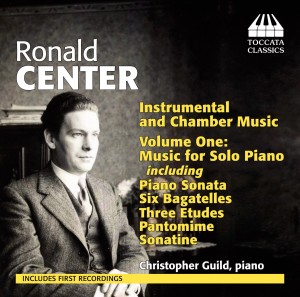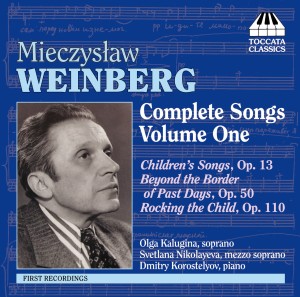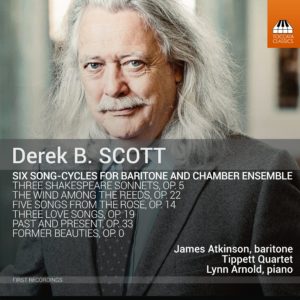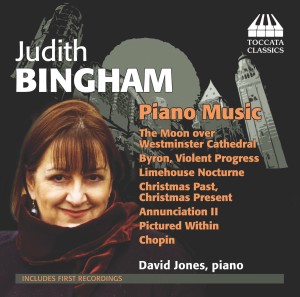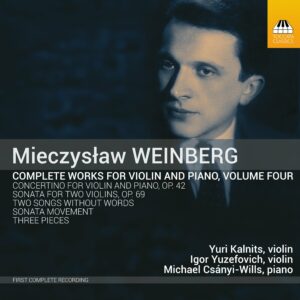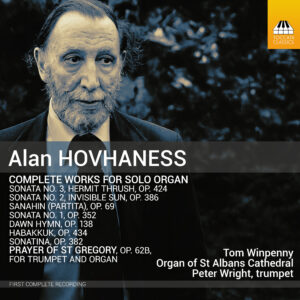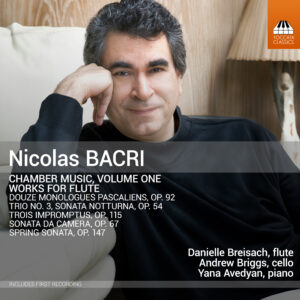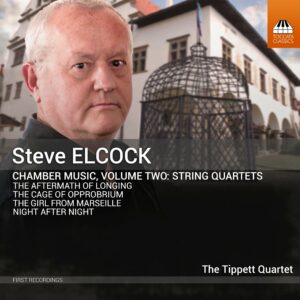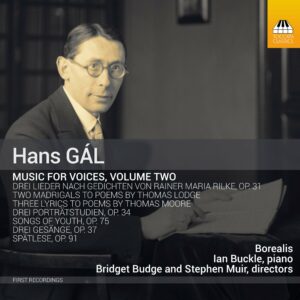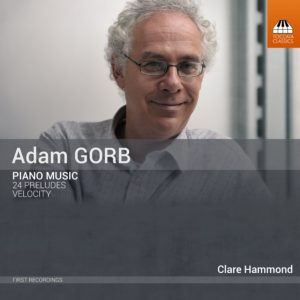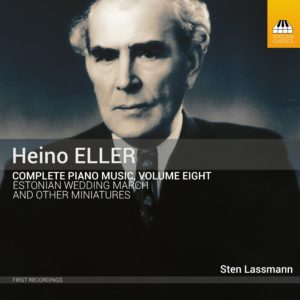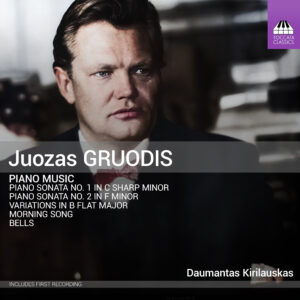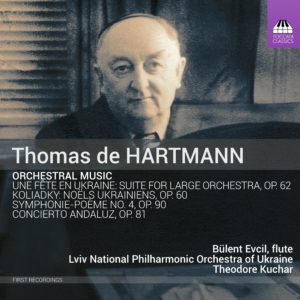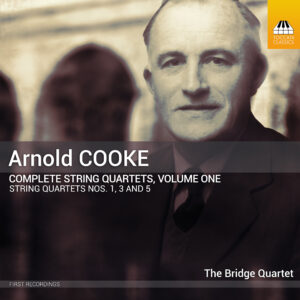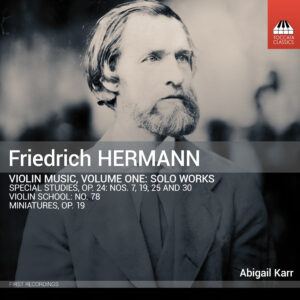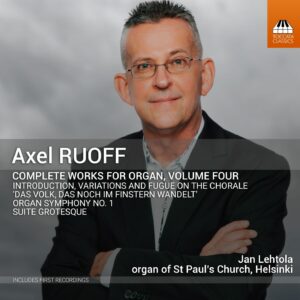Search Results for "Space Wolf: The First Omnibus mp3 torrent" – Page 7
Ronald Center: Instrumental and Chamber Music, Volume One
Ronald Center (1913-73) is sometimes described as 'the Scottish Bartók', and his music does indeed capture some of the wild energy of the Scottish landscape in a style of Bartókian asperity. It also shows affinities with the music of Busoni, Debussy, Prokofiev, Shostakovich and Vaughan Williams, absorbed into an individual style that is audibly Scots. Center wrote with striking concision and meticulous craftsmanship, his works encompassing a wide range of emotions — heart-felt sorrow, grim humour, relaxed lyricism, dark despair — in a crisp and succinct manner, animated by sharp wit and irony.
Christopher Guild, piano
Mieczysław Weinberg: Complete Songs, Volume One
Mieczysław Weinberg (1919-96), the Polish-born composer who spent most of his life in the Soviet Union, was a close friend of Shostakovich, with whose musical language his own has much in common. Weinberg's vast output includes 26 symphonies, seventeen string quartets and some 200 songs. The three song-cycles recorded here date from across Weinberg's career. They demonstrate his extraordinary ability to create atmosphere, often from just a handful of notes, and encompass a wide range of emotion, from wartime suffering, through playfulness and protest, to maternal love.
Olga Kalugina, soprano
Svetlana Nikolaeva, mezzo soprano
Dmitry Korostelyov, piano
Derek B. Scott: Six Song-Cycles for Baritone and Chamber Ensemble
Derek Scott, born in Birmingham in 1950, has an international reputation as a leading historian of the British music hall and other forms of light entertainment. But he is an outstanding composer in his own right, his music treading a fine line between a very English whimsy and a profoundly felt and natural response to his subject matter. These six song-cycles – with influences ranging from Vaughan Williams to The Beatles – reveal a master craftsman and natural tunesmith, who manages to unite good humour, unerring technique and deep feeling in music of immediate appeal, setting texts by poets who include Burns, Hardy, Shakespeare, Swift, Wordsworth, Yeats and the composer himself.
James Atkinson, baritone
Lynn Arnold, piano (Tracks 1-8, 14-26)
Tippett Quartet
John Mills and Jeremy Isaac, violins
Lydia Lowndes-Northcott, viola
Božidar Vukotić, cello
Judith Bingham: Piano Music
Judith Bingham (born in Nottingham in 1952 and London-based since 1970) spent several years as a member of the BBC Singers, which may help explain the lyricism of her music. But the works on this CD also reveals her strong response to poetry and to place, a keen instinct for drama, an ear for keyboard colour and a Busonian sense of space and atmosphere.
David Jones, piano
Mieczysław Weinberg: Complete Works for Violin and Piano, Volume Four
In the past twenty years the Polish-born, Moscow-based Mieczysław Weinberg (1919–96) has been recognised as one of the major voices in twentieth-century music, equivalent in stature to his close friend Dmitry Shostakovich. This fourth and final volume of his music for solo violin, violin and piano and two violins completes the only survey to take all of these works into account. It presents music ranging from a startingly assured early score by the teenage Weinberg to works in which his personality is fully established and instantly recognisable.
Yuri Kalnits, violin
Igor Yuzefovich, violin (10–12)
Michael Csányi-Wills, piano (1–9)
Alan Hovhaness: Complete Works for Solo Organ
Although Alan Hovhaness (1911–2000) was born in Massachusetts and ended his days in Seattle, his music was profoundly coloured by his Armenian heritage, in particular through his fondness for the modal melos of the ancient Armenian church. His combination of modality and melisma, of hymn and dance, can often make him sound like an eastern cousin of Vaughan Williams. The organ is an ideal medium for his musical language, allowing it to range from timeless, questing prayer to gloriously full-bodied statements to stir the soul.
Tom Winpenny, organ of St. Albans Cathedral
Peter Wright, trumpet
Nicolas Bacri: Chamber Music, Volume One – Works for Flute
It may be a cliché to write of the clarity of Gallic writing for the flute – the kind of elegance found in the music of composers like Debussy, Fauré, Gaubert, Jolivet, Messiaen and Taffanel – but French music for flute does indeed have a sound of its own. The flute works of Nicolas Bacri, born in Paris in 1961, uphold the proud tradition of his predecessors with textures of crystalline transparency and poised, almost weightless, melodic lines – and reserves of sardonic bite and freewheeling energy as required.
Danielle Breisach, flute
Yana Avedyan, piano
Andrew Briggs, cello
Steve Elcock: Chamber Music, Volume Two: String Quartets
The English composer Steve Elcock (b. 1957) spent years writing music without ever expecting it to be heard: based in rural France, he worked as a translator, composing in his spare time. The emergence of his orchestral and chamber music on Toccata Classics over the past few years has led to his being acclaimed as one of the most important composers at work today. This recording of his four works (to date) for string quartet confirms that judgement: all in single spans, they generate tension and energy in equal measure – animated, in one of them, by a lively sense of humour.
The Tippett Quartet
John Mills and Jeremy Isaac, violins
Lydia Lowndes-Northcott, viola
Božidar Vukotić, cello
Hans Gál: Music for Voices, Volume Two
Whether in his original home of Vienna, as a conservatoire director in Germany, or as an émigré in Edinburgh, where he became one of the mainstays of musical life, Hans Gál (1890–1987) championed choral singing as a way of directly involving people in making music: he founded and conducted a number of choirs and provided an extensive output of choral compositions. This second album of Gál’s choral music offers a vivid cross-section of his music for chamber choir, featuring mixed voices, women’s voices and male-voice choir, both a cappella and with piano, and ranging across four decades
Borealis
Ian Buckle, piano (Tracks 1–3, 15–17, 23–25)
Bridget Budge, director (Tracks 1–17, 23–25)
Stephen Muir, director (Tracks 18–22)
Adam Gorb: Piano Music
The 24 Preludes of Adam Gorb (born in Cardiff in 1958 and a feature of musical life in Manchester for over two decades) follow the examples of Chopin and Shostakovich in describing a cycle of fifths – though his descend, whereas Chopin’s and Shostakovich’s go up. Like those earlier exemplars, and as with the preludes of Debussy, Rachmaninov and others, Gorb’s are miniature studies of personality and mood – charming, brittle, perky, languorous, bat-flight fast, borderline violent or tender. His Velocity does what it says on the tin: it’s a wild, even manic, chase, over rhythmically dislocating ground.
Clare Hammond, piano
Heino Eller: Complete Piano Music, Volume Eight
The piano music of the Estonian composer Heino Eller (1887–1970), a total of 206 works, is not only the largest part of his output; it is also the largest body of works in Estonian classical music. Most of these pieces are unknown, even though the best of them are original contributions to the twentieth-century piano repertoire, with Eller’s sensitive lyricism underpinned by gentle humour and an occasional epic tone. This eighth volume brings music from half a century of music, from 1912 to 1960 – mostly miniatures but each of them full of atmosphere and personality.
Sten Lassmann, piano
Juozas Gruodis: Piano Music
The music and teaching of Juozas Gruodis (1884–1948) laid the foundations for a national school of composition in Lithuania in the first half of the twentieth century, with his style absorbing influences from both east and west – Rachmaninov, Skryabin, Chopin, Debussy, Reger, Strauss – and from Lithuanian folk-music. Though the piano works heard here were composed within a span of only eight years, they show considerable variety, from the poised to the passionate and powerful, all expressed with full-bodied late-Romantic virtuosity and verve.
Daumantas Kirilauskas, piano
Thomas de Hartmann: Orchestral Music
Born in Ukraine, Thomas de Hartmann (1885–1956), a student of both Arensky and Taneyev, achieved fame as a composer in Russia in the early 1900s, and his concert music was later played by some of the major musicians of the day, primarily in Paris. Since his death, he has been remembered mainly for his association with the Caucasian mystic G. I. Gurdjieff, whom he met in 1916, and his output for the concert hall has fallen into obscurity. The four works receiving their first recordings here reveal a major late-Romantic voice, downstream from Tchaikovsky, contemporary with Rachmaninov, and alert to the discoveries of Stravinsky and Prokofiev
Bülent Evcil, flute (Track 11-13)
Lviv National Philharmonic Orchestra of Ukraine
Theodore Kuchar, conductor
Arnold Cooke: Complete String Quartets, Volume One
The music of the Yorkshire-born Arnold Cooke (1906–2005) – solidly constructed, inventively contrapuntal, lyrical and energetic in turns – does not deserve the neglect it suffered even in its composer’s lifetime. This first album, of two presenting all five of Cooke’s string quartets, underlines his reputation for resourceful craftsmanship, presented in a style which sits downstream from Paul Hindemith, with whom he studied in Berlin, and from Béla Bartók.
The Bridge Quartet
Colin Twigg and Catherine Schofield, violins
Michael Schofield, viola
Lucy Wilding, cello
Friedrich Hermann: Violin Music, Volume One – Solo Works
The German violinist, violist and composer Friedrich Hermann (1828–1907) spent the six decades of his adult life teaching at the Leipzig Conservatoire and, although his works include a symphony, a string quartet and numerous other chamber pieces for strings, by far the largest part of his output is pedagogical in nature. But he pumped his teaching pieces full of imagination, as the studies here demonstrate. Even though the twenty Miniatures published in 1881 are intended for student violinists, many of them are tiny tone-poems intended both to engage the attention of their players and challenge their techniques – and their mix of poetry and humour should also appeal to adult listeners.
Abigail Karr, violin
Axel Ruoff: Complete Works for Organ, Volume Four
The organ works of Axel Ruoff, born in Stuttgart in 1957, constitute one of the most important contributions to the literature for the instrument by any composer since Messiaen, with Ruoff often using its unparalleled resources to write music of extraordinary power and dramatic flair. This fourth volume in Jan Lehtola’s complete recording presents three large-scale compositions: a set of chorale variations, a sardonic suite and a monumental organ symphony, all displaying the wild sweep of Ruoff’s imagination.
Jan Lehtola, organ
Stay In the Know
JOIN THE TOCCATA NEWSLETTER
"*" indicates required fields
By visiting our site, you agree to our privacy policy regarding cookies, tracking statistics, etc.
